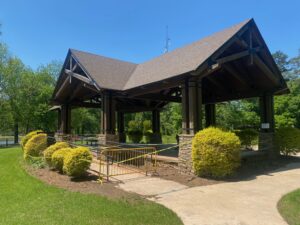Peachtree City Mayor Don Haddix has declined a request from his fellow council members to repay nearly $10,000 in taxpayer money that was spent to cover his legal bills in a libel lawsuit filed against him personally, not in his capacity as mayor.
In response, council members directed City Attorney Ted Meeker to write an appeal to the city’s risk management company, asking it to reverse its decision to foot Haddix’s legal bill, which in turn forced the city to spend the money to reimburse the company without approval from the city council.
The matter unfolded at Thursday night’s city council meeting, in the wake of the lawsuit, which centered on an email Haddix sent to a city employee that contained the accusation that former Mayor Harold Logsdon “drank a lot and came to meetings part drunk.”
Haddix contended the city should pay his legal fees since he was acting as mayor when he sent the email.
“What part of your duties as mayor called upon you to insult the former mayor?” asked Councilman George Dienhart, who asked a similar question two other times, only to get no direct answer from Haddix, who said he was not going to get into the issues of the case.
It came out Thursday night that the Georgia Interlocal Risk Management Association turned down three requests from Haddix to fund his defense, based on the premise that he was sued as a private citizen and not in his capacity as mayor. But a fourth request in February, authored by City Attorney Ted Meeker at
Haddix’s request, was successful in convincing the agency to pay Haddix’s legal bills in the suit.
“I believe I was entitled, I believe I was acting as mayor, and that’s my bottom line,” Haddix said.
Because GIRMA agreed to cover the legal bills, the city had to write a check to GIRMA for the amount because the total came in under the city’s $25,000 deductible for legal expenses per case.
Thursday night, Haddix claimed he was covered under the city’s indemnification ordinance. But City Attorney Ted Meeker, under questioning by council, noted that the indemnification ordinance only covers council members for performing their duties in the scope of their employment or official actions.
“I did not see how the indemnification resolution covered it given the nature of the allegations,” Meeker said.
Dienhart implored the mayor to repay the money to save the city additional legal fees it would need to pay to seek to recoup the money.
Haddix pointed out that he apologized in the newspaper and to former Mayor Logsdon, whom Haddix claims refused the apology.
The lawsuit was settled with a confidential agreement between the two parties that included a written apology from Haddix to Logsdon. Haddix accused his fellow council members of determining he was guilty of the offense.
“I’m not judging you either way,” replied Dienhart. “I’m asking you for $10,000 on behalf of the people of Peachtree City.
Haddix called the difference between him being sued and the city being sued “a little thing.” To which Dienhart replied, “Ten thousand dollars is not a little thing.”
A number of facts were presented Thursday night that show Haddix defended himself in the lawsuit outside of city policy for lawsuits filed directly against the city, including:
• Haddix chose his own attorney in the matter instead of being represented by City Attorney Ted Meeker or an attorney appointed by GIRMA, which is the usual process; however Meeker noted that he told Haddix right away he could not represent him since he was a witness to council meetings at which Logsdon was present during his term as mayor and thus could be a witness in the lawsuit;
• Haddix alone controlled the result of the lawsuit and negotiated the settlement; had the city been sued the decision on defending or settling the lawsuit would have been left up to the city council;
• A total of three requests for GIRMA to fund Haddix’s defense were denied based on the fact that the suit was filed against Haddix as a citizen and not in his official role as mayor;
Councilman Eric Imker asked Meeker if he thought Haddix’s actions in the matter amounted to a breach of the city’s ethics ordinance. Meeker said he would have to review the ordinance again to make such a determination.
Imker also inquired whether the email would have violated a city policy that states messages such as emails “should be professional.”
Meeker replied that he wouldn’t consider such a statement to be considered professional.
Haddix said he would provide Meeker with the previously-confidential settlement document, a request made after Imker suggested the city’s payment makes the document a public record.
Meeker confirmed that there are no open records law exceptions that would prevent that settlement from being a public record because cities are prevented from entering confidential settlements according to Georgia law.
The matter also drew interest from three citizens who spoke during public comments at the beginning of Thursday’s city council meeting. Each demanded that the city be repaid by the mayor for the expenditure.










Leave a Comment
You must be logged in to post a comment.